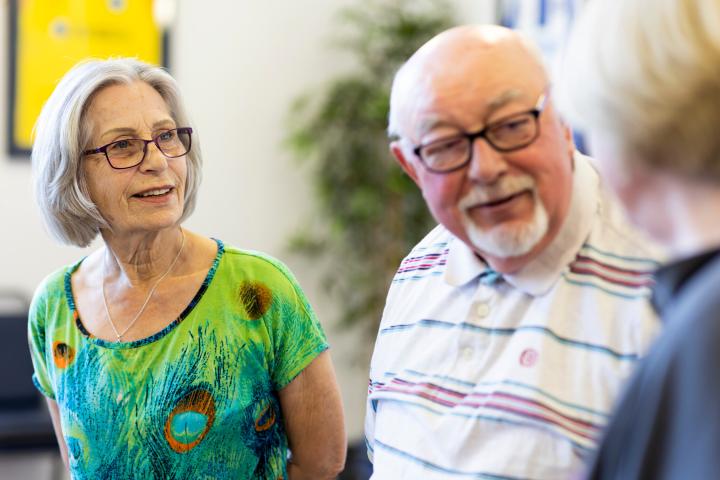Wishing our Public Involvement Network a happy first birthday
Earlier this month, our Public Involvement Network reached a milestone by celebrating its first birthday.
To mark the occasion, our Patient and Public Involvement and Engagement Co-ordinator, Jenny Robertson, took some time to reflect on how the Network has grown in the last 12 months.
Public involvement is integral to our work at the ACRC. By working closely with older adults and their family members, we hear first-hand about the challenges that people face in accessing health and social care and we can co-develop our research to ensure that we are designing research that meets the needs and priorities of older adults. It’s great to see members of the public supporting our work in this way.

To date, over 30 people from across the UK have signed up to the Network to share their personal experiences of later life in a way that helps us to design and run our research. The group have been kept busy, supporting over 22 different projects within, and connected to, the ACRC over the last 12 months. Projects have been varied, from commenting on the readability of participant information sheets for research on the outdoor activities of older adults, to discussing the benefits and challenges of using technology in people’s homes to monitor falls.
Stella, a member of our Public Involvement Network, recently helped us create and present our Worlds of Care exhibition at the Edinburgh Science Festival. She said “During my involvement with ACRC I’ve felt valued and my views listened to. The respect and care I’ve experienced from the friendly staff and fellow Network members has been first class”.
Dr Nav Aujla has been working with some of our Public Involvement Network members on their project to develop new models of care for older adults. Nav said “It’s been great to work with PPI contributors on our project, from giving feedback on study design, to reviewing our ethics documents, and joining us in presentations about the research.
We’re trying to identify innovative ways to improve health and social care for people in later life. It’s enormously valuable to hear peoples’ first-hand experiences of care. Without these insights, it would be impossible to know how to improve things for people, in the ways that work best for them.”
We expect the Network to go from strength to strength and will continue to have interesting and diverse opportunities to involve members of the public in our research in the future.
We would like to say a huge thank you to everyone that has supported our work so far.
If you’d like to learn more about our Public Involvement Network, you can do so here.

